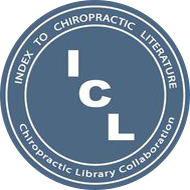Objective: This study aimed to compare sensory organization test and postural control strategies between individuals with mild and moderate-to-severe forward head posture (FHP).
Methods: A sensory organization test (SOT) was performed in 6 conditions using computerized dynamic posturography, to assess postural control. Equilibrium scores representing overall balance, strategy analysis to assess ankle vs hip strategy dominance, and sensory analysis (Somatosensory, visual, vestibular, visual preference ratio) as an indicator of the use of sensory systems were obtained.
Results: Our results revealed a significant difference between the 2 groups in terms of equilibrium score (P < .05) and strategy scores (P < .05) in conditions of 4 to 6 of the SOT. The results of sensory analysis of SOT showed visual and vestibular ratios were significantly different between the 2 study groups (P < .05), but somatosensory and visual preference ratios were not significantly different between these 2 groups (P > .05).
Conclusion: Individuals with moderate-to-severe FHP swayed more in comparison with mild FHP ones in conditions with the Sway-referenced platform of the SOT. They tended to rely on the hip strategy more than the ankle strategy excessively when sensory difficulty increased. Overall, it can be concluded that individuals with moderate-to-severe FHP are more likely to have postural deficits.
Author keywords: Postural Balance; Posture; Proprioception; Vestibular System.
This abstract is reproduced with the permission of the publisher; full text is available by subscription. Click on the above link and select a publisher from PubMed's LinkOut feature.
|
